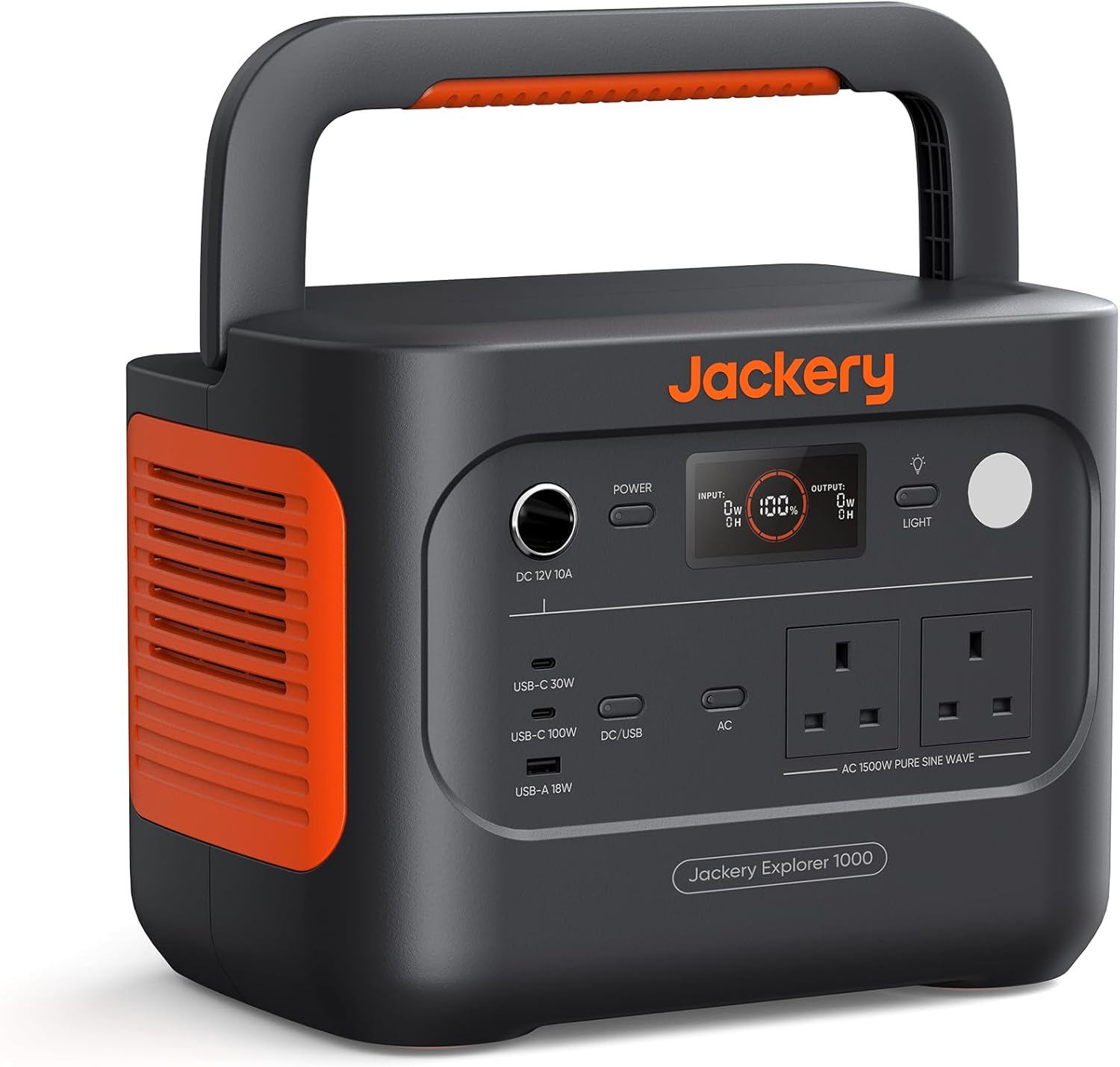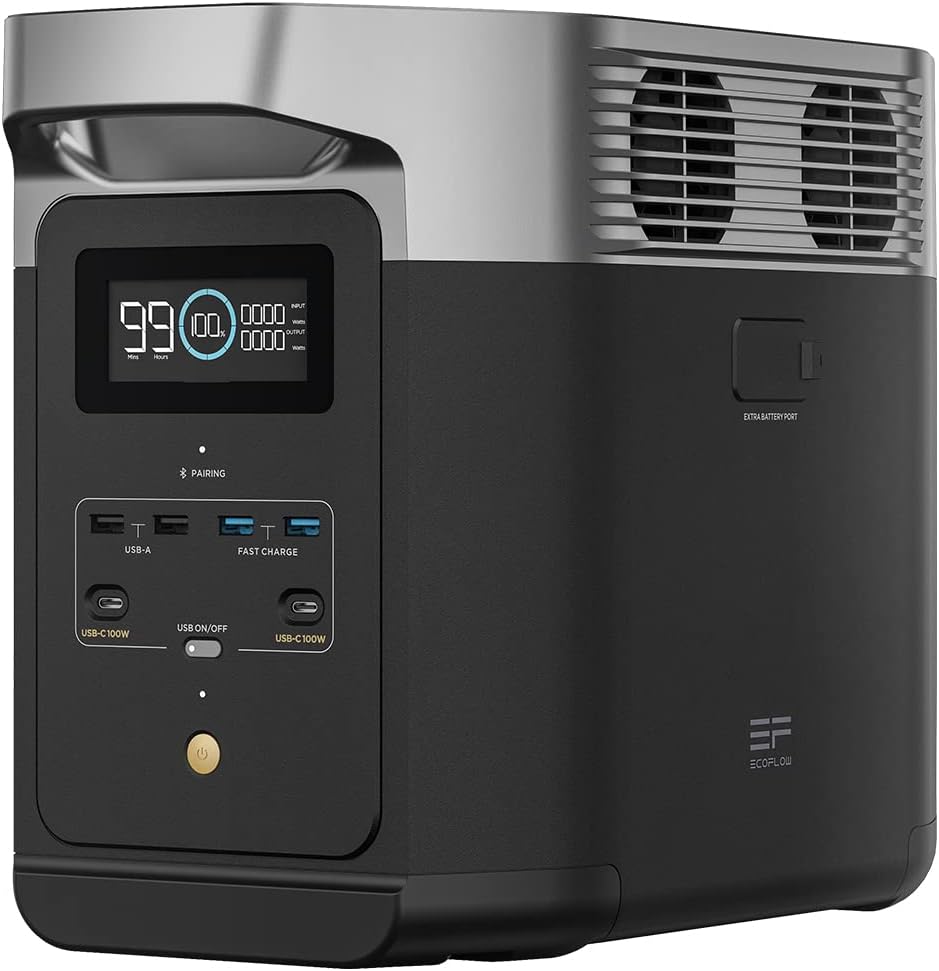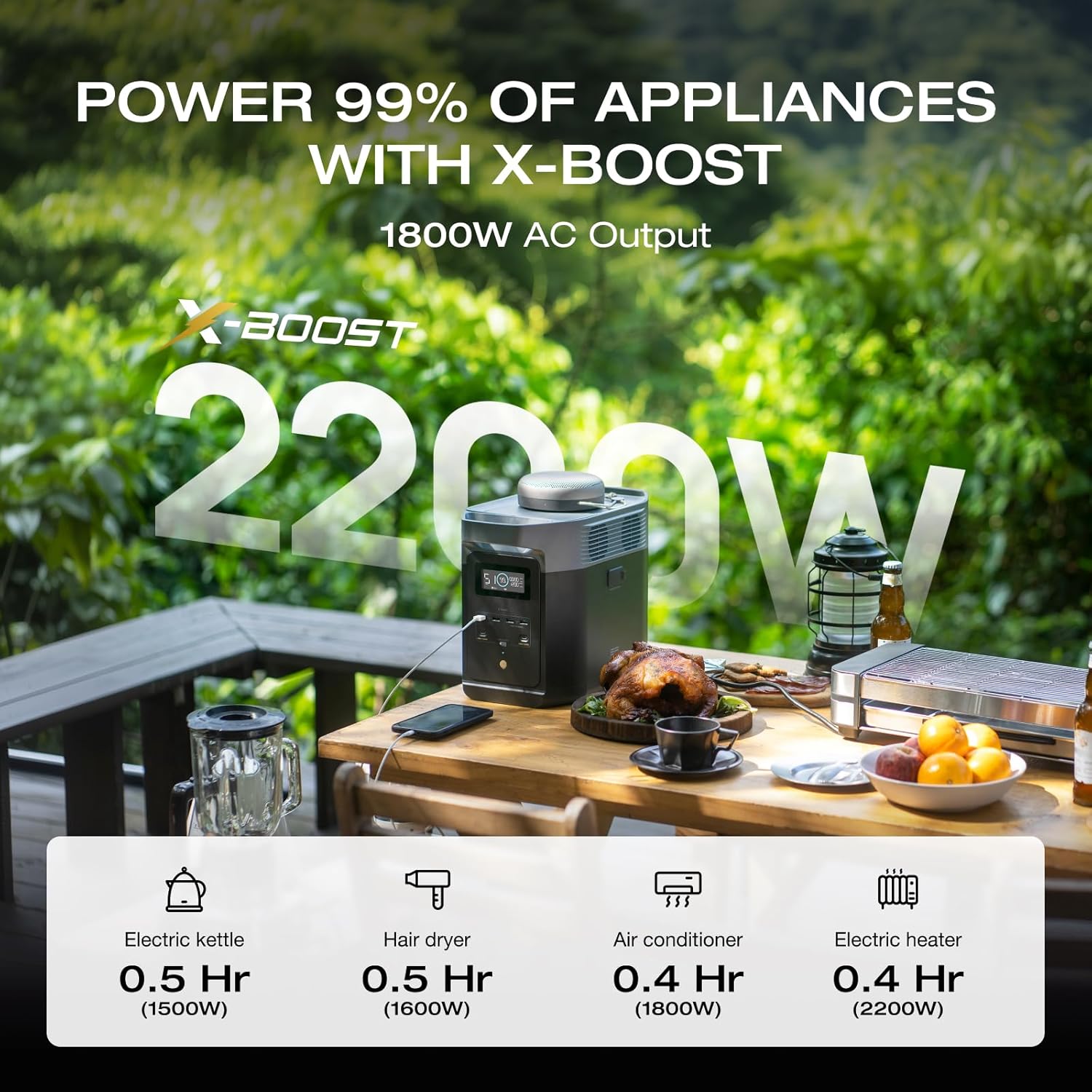Power Your 2025 RV Adventures: The Ultimate Guide to Lightweight Power Stations
Unlock Off-Grid Freedom with the Perfect Portable Power for Your Camping Needs
The Growing Need for Lightweight Power Stations for RV Camping 2025
As we embrace the 2025 RV camping season, the demand for efficient, portable, and, crucially, *lightweight* power solutions continues to surge. RVers are seeking to maximize their mobility and fuel efficiency without sacrificing the comforts of having reliable electricity on the road. Traditional generators, while powerful, often come with significant drawbacks: weight, noise, and the need for fuel. This is where the evolution of lightweight power stations for RV camping offers a game-changing alternative.
These modern power solutions provide a clean, silent, and often solar-chargeable way to keep your essential devices running, from lights and refrigerators to charging phones, laptops, and even powering medical equipment. The key is finding the right balance between power capacity, portability, and features that cater specifically to the unique demands of RV life. In this comprehensive guide, we’ll explore what makes a power station truly “lightweight” and ideal for RVing in 2025, address common questions, and spotlight two leading contenders in the market: the Jackery Explorer 1000 v2 and the EcoFlow Delta 2.
What Makes a Power Station “Lightweight” for RV Camping?
The term “lightweight” is relative, especially when considering the power needs of an RV. However, for our purposes, we’re focusing on power stations that offer a significant capacity without becoming a burden to move in and out of your RV or impacting your vehicle’s overall weight. Typically, lightweight RV power stations range from under 10 kg (around 22 lbs) to around 15 kg (around 33 lbs) while still providing substantial Watt-hours (Wh) of energy.
Key factors to consider when evaluating the “lightweight” aspect include:
- Total Weight: How easy is it to lift and maneuver?
- Capacity vs. Weight Ratio: Does it offer a good amount of power for its size and weight?
- Portability Features: Does it have comfortable handles or a design that makes it easy to carry?
Answering Your RV Power Needs: Common Questions
Before diving into specific product recommendations, let’s address some frequently asked questions by RVers looking for lightweight power solutions:
- How much capacity do I need for RV camping? This depends on your power consumption. List your essential devices and their wattage, and estimate how many hours you’ll use them. A weekend trip might require around 500-1000Wh, while longer trips will need more.
- Can I run appliances like a mini-fridge or coffee maker? Yes, but check the power station’s output (in Watts). Make sure it exceeds the running wattage of your appliances. The EcoFlow Delta 2, with its higher output, is generally better for this.
- Is solar charging feasible for RV power stations? Absolutely! Many lightweight power stations are solar-compatible. Consider the solar input wattage they support and the size of solar panels you can carry.
- How long will a lightweight power station last? This depends on the capacity and your usage. A 700Wh station powering a 70W device could theoretically last around 10 hours (with some efficiency loss).
- Are these power stations safe to use inside my RV? Yes, reputable brands like Jackery and EcoFlow design their power stations with multiple safety features, including overcharge and temperature protection.
The Jackery Explorer 1000 v2: High-Capacity Power in a Lightweight Package


The Jackery Explorer 1000 v2 offers a robust 1070Wh capacity and a powerful 1500W output, making it an excellent choice for RV campers needing reliable power for extended trips. Weighing just 10.8 kg (23.8 lbs), its compact design and foldable handle ensure easy portability for RV adventures.
- Capacity: 1070Wh
- Weight: Approximately 10.8 kg (23.8 lbs)
- Solar Charging: Supports up to 400W solar input
- Output: 1500W continuous (3000W surge)
- Ports: 3 AC outlets, 2 USB-C (100W, 30W), 1 USB-A, 1 DC car port
With its fast charging (1 hour in emergency mode via app), durable LiFePO4 battery, and versatile ports, the Jackery Explorer 1000 v2 is a top-tier lightweight power station for RVers seeking power and portability in 2025.
Pros & Cons
- High 1500W output with 3000W surge
- Lightweight at 23.8 lbs with foldable handle
- Fast charging (1 hour in emergency mode)
- Solar charging up to 400W
- Slightly heavier than smaller units
- No battery expansion option
The EcoFlow Delta 2: Power and Versatility for Extended RV Adventures


The EcoFlow Delta 2 steps up the game with its impressive 1024Wh base capacity, expandable up to 3072Wh with additional batteries. Its higher 1800W output makes it capable of powering a wider range of RV appliances, making it ideal for longer trips and those needing more energy independence.
- Capacity: 1024Wh (Expandable)
- Weight: Approximately 12 kg (26.5 lbs)
- Charging: Extremely fast AC and solar charging capabilities
- Output: 1800W (Surge up to 2700W), X-Boost up to 2200W
- Ports: Comprehensive selection of AC, USB-A, USB-C, and 12V car ports.
The EcoFlow Delta 2’s rapid charging and expandability make it a powerful and versatile companion for RVers who want to enjoy the comforts of home while on the road for extended periods.
Pros & Cons
- High 1800W output (2200W with X-Boost)
- Expandable capacity
- Fast charging
- Can power many devices.
- Heavier than Jackery 1000 v2
- More expensive
Frequently Asked Questions
Q: What is the difference between a power station and a generator?
A: Power stations are battery-based systems that provide clean, silent power, while generators typically use gasoline or propane and produce noise and emissions.
Q: Can I charge these power stations while driving my RV?
A: Yes, both the Jackery Explorer 1000 v2 and the EcoFlow Delta 2 can be charged via a 12V car outlet while driving.
Q: How do I choose the right size solar panel for my power station?
A: Match the solar panel’s voltage and amperage to the power station’s solar input specifications. Consider the wattage and how many panels you can fit on your RV.
Q: Are these power stations waterproof?
A: Generally, these lightweight power stations are **not designed to be fully waterproof** and lack high IP (Ingress Protection) ratings for water submersion. The IP rating is an international standard that defines the level of protection an enclosure provides against both solid objects (like dust) and liquids (like water). It’s typically represented by two digits: the first indicates protection against solids (from 0 for no protection to 6 for dust-tight), and the second indicates protection against liquids (from 0 for no protection to 9K for resistance against powerful high-temperature water jets).
For example:
- IPx0: No protection against liquids.
- IPx1: Protected against vertically falling water drops.
- IPx4: Protected against splashing water from any direction.
- IPx7: Protected against temporary immersion in water (up to 1 meter depth for up to 30 minutes).
- IP6x: Dust-tight (no ingress of dust).
For more details, check the wiki page
Neither the Jackery Explorer 1000 v2 nor the EcoFlow Delta 2 are typically advertised with high water resistance ratings (like IPX7 or IPX8). They might offer some minimal resistance to splashes (perhaps IPx4 in some cases), but you should always **check the official product specifications on the seller’s website or the manufacturer’s documentation for the precise IP rating.** Protect these power stations from significant rain, submersion, and excessive moisture to ensure their longevity and safe operation.
Choosing the Right Lightweight Power Station for Your 2025 RV Adventures
Ultimately, the best lightweight power station for your 2025 RV camping will depend on your individual needs and priorities. If you’re looking for a high-capacity, lightweight solution capable of powering a wide range of devices for extended trips, the Jackery Explorer 1000 v2 is an excellent choice. Its robust output, fast charging, and portable design make it a strong contender for RVers.
However, if you plan on extended trips, need to power larger appliances, or desire the flexibility to expand your power capacity, the EcoFlow Delta 2 is the clear winner. Its higher output, expandable battery system, and fast charging capabilities provide unmatched versatility and energy independence.
Both power stations represent a significant leap forward in portable power technology, offering RVers a clean, quiet, and convenient way to enjoy the comforts of home while exploring the great outdoors. Consider your specific power requirements, budget, and the features that are most important to you to make an informed decision and embark on your 2025 RV adventures with confidence.
Explore More Power Stations
Looking for other power station options? Visit our comprehensive guide to discover a wider selection: